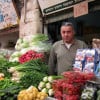The Hazon Cross-USA Ride is an incredible and unique adventure. The Ride starts in Seattle on June 13th and ends in Washington, D.C. on August 16th, with riders joining and ending in various locations. Across the country, the riders and Hazon will be raising money and awareness about sustainability in our country- in both our transportation and food systems. In the next few weeks, Hazon staff will be in your community in the Midwest! Come enjoy cooking classes, Jewish learning, and social events – and hear how Hazon can enable you to make a difference while cycling across America. For more information about any program, contact adrienne.winton@hazon.org Join us in: Cleveland | Ann Arbor | Chicago | Columbus | Pittsburgh Cleveland Wednesday, February 20 – Beachwood Mandel JCC Hazon will be visiting the Beachwood Mandel JCC in the morning- come stop by and hear about an incredible Ride! Contact Bonnie Marks at 216 593 6201 for more information Time: 7:30 – 8:30 am Location: JCC Mandel | 26001 S Woodland Rd | Beachwood, OH 44122 Ann Arbor Wednesday, February 20 – University of Michigan Hillel Enjoy free snacks and learn about how sustainability and Judaism go hand-in-hand- and how you can […]
Author Archive | Hazon
Israel Sustainable Food Tour – Tentative Itinerary
[blue_message] We are pleased to present a draft of the itinerary for the Israel Sustainable Food Tour, a partnership of Hazon and the Heschel Sustainability Center. For more information about the tour visit hazon.org/foodtour. Please note that all stops on this draft itinerary are tentative. A final itinerary will be published leading up to the tour in May. [/blue_message] Heschel – Hazon 3rd Israel Sustainable Food Tour May 22-27, 2013 י”ג – י”ח סיון, תשע”ג Time Activity Location Wednesday, May 22 10:30 AM Bus Pick Up in Jerusalem 11:30 AM Bus Pick Up at Airport 12:00 PM Lunch at an Organic CSA Gan Hasadeh in Kfar Ruth 2:00 PM Hit the ground picking produce at Kvutzat Schiller, and hear about issues of nutritional insecurity under the auspices the of Leket – Table to Table Kvutzat Schiller 7:00 PM Opening Dinner: Eucalyptus Restaurant, chef Moshe Basson Jerusalem Overnight: Little House in Rehavia Jerusalem Thursday, May 23 8:00 AM To market: Insider’s tour and taste of Machaneh Yehuda, the storied open air shuk in Jerusalem. Jerusalem 10:00 AM Meet with Yossi Wolfson of the Zangvill Center, and discuss vegetaranism and animal rights Jerusalem 1:00 PM Jewish Permaculture: new/old wisdom with Talya Shneider, Israel’s permaculture […]

10 Ways to Make your Purim More Sustainable
Here are the Top 10 quick and useful suggestions from Hazon, to make your Purim more healthy and sustainable. To find out more information and suggestions from Hazon for Purim, visit the Hazon Purim Resource Page. 1 – Purim Recipes 2 – Edible Groggers Serve crispy, crunchy, NOISY foods this Purim (try things like: fresh veggies and yogurt-dill dip, blue corn chips and salsa or home made pita chips with your favorite store-bought or home made hummus). As guests snack away, their crunches will let Haman know what a wicked, wicked man he really was. 3 – Can the Canned Fruit! You may want to buy fruit for your hamentashen filling, but try your best to avoid fruit from a can! Buy your fruit for your hamentashen in glass jars, or use fresh fruit. Cans (and most plastics) are lined with a chemical called Bisphenol-A (BPA) which is an endocrine disruptor, and a chemical that all should try their best to avoid. Learn more about Bisphenol-A from Grassroots Environmental Education. 4 – Sustainable Drinks Don’t forget to drink sustainably this Purim. Pick an organic wine from our kosher, organic wine list. For some celebratory Whiskey for Purim, check out the Koval Distillery in Chicago for organic spirits. Or mix your […]
An Exception to the Rule
by Shae Selix This piece originally appeared on the Arava Institue website. Through my Masa scholarship, I have had the privilege to work for the past three and a half months at the Arava Institute for Environmental Studies in Kibbutz Ketura. Like many Masa students, I have been able to see the beauty of Israel, from the acacia trees in the Negev, to the mystical waters in the Dead Sea, to the Jerusalem stone in the capital. I feel that my experience may be particularly unique because at the Arava Institute I have had the opportunity to experience how Jews and Arabs have the potential to not only live peacefully together in Israel, but also become great friends. Of course, due to the timing of my stay, I have also seen that this is not always the case. Only weeks ago, the State of Israel was in armed conflict with Gaza. At the Institute, we all had to watch together as Israel was again in the spotlight of the world stage, and hopes of peace in the Middle East seemed even further set back. For many new residents of Israel, this surely represented a first opportunity to witness the tragedy of […]
The Heebavore: Jewish Vegan Cooking in the New Year
By Rachel Grossman I’m the Heebavore – a Jewish/vegan food blogger, a born and raised secular Jew who, just under one year ago, converted to Judaism and became an aspiring vegan. My Jewish journey really began just a few years ago as I attended classes, met with rabbis, went to services with no frame of reference, repeatedly lost in Hebrew gibberish that made me long for something solid and sweet, guttural. To be one voice among many, to be of something greater, larger. And, of course, part of this was trying to make Jewish foods to internalize it all. At the time, it wasn’t clear to me that foods held any particularly special place in the journey. (more…)
Shmita: Weaving Relational Threads
by Yigal Deutscher The tribes of Israel have just gathered together, am echad b’lev echad, one nation with one synchronized heart, in alignment and in unity. They have just stood, in deep humility, in awe, in trepidation, witnessing and receiving a divine gift. They have emerged from the brokenness of slavery; they have traveled through the wilderness for 50 days, only to stand together in this moment, before a mountain covered in fire, topped with thundering clouds, shimmering with lightning, rippling with the sounds of the Shofar. 1o utterances have emerged from the heart of creation; 10 utterances so clear and powerful that the tribes could actually see & feel each of them, as they echoed from the mountain, from the sky, from the ground and rock and sand below their feet, and from within their own beating hearts. (more…)
Shmita in Action: Israel
This is one article in a seven-part series, recapping a shmita study group, sponsored by Hazon and Kevah. You can find other posts in the series on the shmita blog. Shmita (the sabbatical year), on the theoretical level, is a radical movement towards social equality, awareness of land ownership, understanding of good agricultural practices, and a major reconsideration of a monetary system. Sounds like an interesting thought-experiment, right? Well, Shmita is also a real-life system that is currently implemented in Israel, the only place where following the laws of Shmita are traditionally required. The various systems in place in Israel right now are quite complex. There are essentially four options to choose from when a farmer is deciding in what capacity he will follow the laws of Shmita: Continue life as normal Use the rabbinical tool of Heter Mechira Use the rabbinical tool of Otzar Beit Din Import food from outside of Biblical Israel For someone just trying to buy food, this could get quite confusing. Do I follow the laws of Shmita? Do I trust the Heter Mechira certification? Should I just be extremely safe and buy only imported food (despite the harm to the Israeli economy). Why so many options? Why can’t […]
Siach – The Impact of the Israeli Elections on Civil Society and Social Change
The Siach network invitess you to FREE Post-Election Analysis Webinar: THE IMPACT OF THE ISRAELI ELECTIONS ON CIVIL SOCIETY AND SOCIAL CHANGE Are you interested in hearing about… the impact of the election on civil society in Israel changes and emerging trends in Israeli society the future for the third sector in Israel Join us as two experts – Rabbi Michael Melchior and Don Futterman – share their insights on how the changing political map in Israel will impact the future for civil society and society as a whole in Israel. MONDAY January 28 2013 – 9pm Israel (GMT +2); 7pm UK (GMT) 2pm New York (EST) (more…)

The Sabbatical Debt Release
By Yigal Deutscher In the third and final mention of Shmita in the Torah, the concept of Shmita expands to directly influence economic and monetary systems. Until now (sources in Shemot & Vayikra), Shmita texts have been specifically in reference to land, agricultural practices, and annual harvests. Here, with the text of Devarim, the picture and implications of the Shmita Year is complete: Along with the practices of leaving land fallow, opening private lands as commons, collectively sharing the harvest, we are also to synonymously forgive debts. Once the Seventh Year arrives, all loans which are outstanding are released and all debts are cancelled. Here are some thoughts to consider regarding this practice (see the full text here): (more…)
Nigel Savage at Ohev Shalom Scholar-In-Residence Weekend
Congregation Ohev Shalom, Wallingford, PA is thrilled to present Nigel Savage, founder of America’s largest Jewish environmental organization, Hazon, as the 2013 Scholar-in-Residence. Throughout the weekend of February 8-10, Mr. Savage will be presenting a series of engaging and thought-provoking lectures around the theme, “Eating Jewishly in the 21st century.” On Sunday morning, the weekend will culminate with a brunch event where Nigel Savage will team with renowned Philadelphia chef, Michael Solomonov, for further conversation. All events are free and open to the public. For more information visit, www.ohev.net, and see the link to “Scholar-in-Residence.”
Review of “God’s Prayer: The Sacred Task of Living,”
by Yedidya Sinclair “Why doesn’t God speak to people any more?” my five year old asked me the other day, after a few months of learning the stories of Genesis in her kindergarten. After all, God seemed to have so much to say to our ancestors. Why has He fallen so quiet lately? A philosopher friend at our Shabbat table who heard the question answered her, “Maybe God does still talk to people, but not in the way that He used to.” Perhaps an even more interesting question is, “what would God say today if He were to talk to people?” Would God criticize school children for the insufficient length of their blouse sleeves? Or weigh into the debate on whether public transport should run on Shabbat in Israel? Or perhaps offer an omniscient opinion regarding which presidential candidate was really best aligned with the interests of Israel and the Jewish people? Would God, in other words, talk about the sorts of things that we talk about? Michael Kagan, in his important and powerfully-written new book, ‘God’s Prayer’, thinks not. ‘God’s Prayer’ begins with a cry of anguish at the suffering and destruction that human beings are wreaking on Creation. […]

Seven Sustainable Species for Tu B’Shvat
These 7 Tu B’Shvat Species will help to make your Tu B’Shvat celebration even more sustainable! For many people in the US, the 7 species are not in season locally
Shmita in Chicago Martin Luther King Jr. Day Weekend

10 Ways to Make your Tu B’Shvat More Sustainable
Here are the Top 10 quick and useful suggestions from Hazon, to make your Tu B’Shvat more healthy and sustainable. To find out more information and suggestions from Hazon for Tu B’Shvat, visit the Hazon Tu B’Shvat Resource Page.
Practical Applications of Shmita Year Laws
Here at Hazon, we’ve had the privilege of studying Shmita together over the last few months. As a group, we have begun to understand the Shmita cycle through two different frames: A sabbatical for the land and a response to agricultural practices that may have been unsustainable. A sabbatical for people and a way to create a more just and equitable society. It is through these lenses that we began to look at some of the applications of Shmita in halacha (Jewish law). One interesting tidbit that we learned was how you are able to use produce that happens to grow during the Shmita year. Maimonidies’ Mishne Torah (a compendium of Halacha) outlines that food which grows during the Shmita year should be treated the same way that we treat teruma (produce that has been tithed as an offering for use in the Temple). “He should not change the natural function of the produce as he does not with regard to teruma… something that is normally eaten raw should not be eaten cooked. Something that is normally eaten cooked should not be eaten raw” (Mishneh Torah, Chapter 6). In other words, you should use Shmita year produce as you normally would, and not […]



